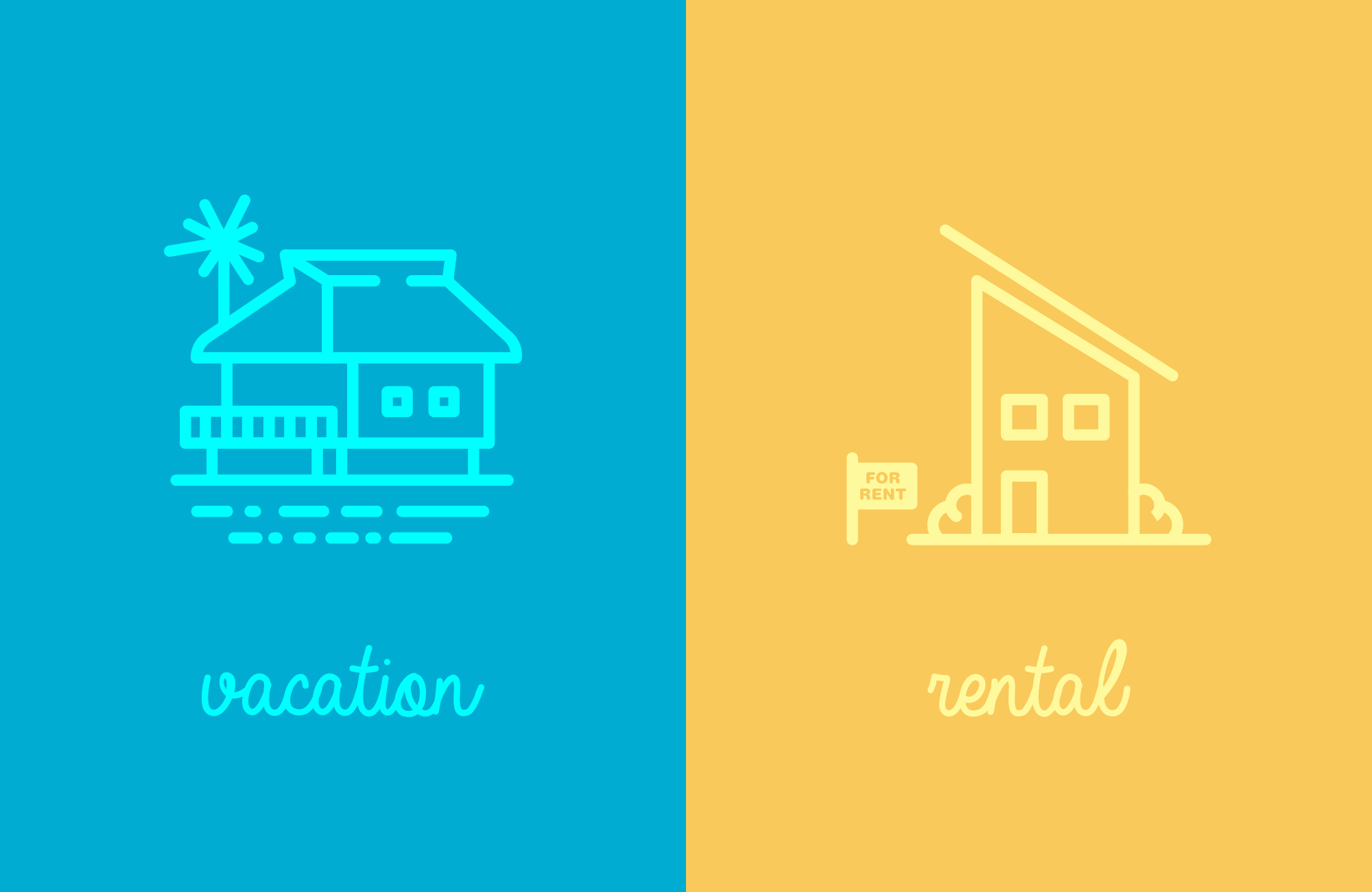
Investment Property or Vacation Home? Which One is Right for You
Investment Property or Vacation Home? Which One is Right for You
So, you’re thinking about finally investing in that beach house up for sale in your favorite resort town. But will it be your vacation home? Or will you use it as a rental property?
Maybe you’re planning on doing a little of both. Either way, purchasing a property can always be seen as a good long-term investment, whether you plan on generating rental income or not. However, mortgage lenders and the IRS will define your home as either a personal residence or investment property.
Here are some of the main differences between vacation homes and investment properties.
Vacation Homes
A vacation home, or second home, is a residence that you plan to occupy for part of the year. It’s typically used as a vacation home but could also be used as a property that you visit on a regular occasion—such as an apartment in a city you visit frequently for work. Typically, vacation homes must be located a certain distance from your home, or in a resort area, such as the Outer Banks of North Carolina.
A second home is a reasonable distance from your primary home. You must occupy the home some portion of the year and you cannot typically own another home in the same area.
Borrowers who want to purchase a vacation home must have enough income to qualify for monthly payments and will typically need a sizable downpayment, at least 10%.
To qualify for a second home, a borrower must ensure that the home will be occupied only as a second home and that the property will be kept available for the borrower’s exclusive use and enjoyment. This means that the borrower cannot use the home solely as a time-share or rental home.
When purchasing a second home, your lender will want to ensure that the owner intends to occupy and control the home. Also, even if there is seasonal rental income on the home, you cannot use any rental income for qualifying.
This doesn’t mean you can’t rent out your vacation home on occasion, which is a common misconception.
Your vacation home is considered a dwelling unit if you use it for personal purposes for 14 days during a taxable year or use it 10 percent of the total days you rent it out to others.
For instance, if you occupy your vacation home for 20 days throughout the year, it is still considered as a vacation home—unless you rent it out more than 180 days throughout the taxable year. You should consult your tax advisor for more details.
In fact, borrowers may rent out their vacation home 14 days throughout the taxable year without reporting any income to the IRS. You cannot deduct expenses associated with renting the property, but can still deduct mortgage interest, real estate taxes and casualty and theft losses, according to the IRS.
Locally property management companies allow homeowners to be absentee owners but still have full control to use the property whenever they want for however long they would like. The property management company can help you keep track of rental usage and report it to the IRS.
Investment/Rental Homes
An investment property is not your primary residence, and it is purchased in order to generate income, profit from appreciation, or to take advantage of certain tax benefits.
An investment property is a true investment, purely for rental income or for clients who own multiple homes in the same area.
Borrowers purchasing an investment home will likely need to put more money down than they would for a second home. Under some circumstances, projected rental income can be used to help qualify the borrower for an investment property.
The biggest difference in qualifying for an investment property and vacation home is that the reserve assets needed on an investment property is greater, and rental income could be used to qualify for an investment property.
Rental properties allow for personal use, but it is limited to no more than 14 days or 10 % of the number of days it is rented out.
All rental income must be reported to the IRS. You can write off expenses from your rental homes, such as mortgage interest, property tax, operating expenses, depreciation, and repairs. You must, however, pay taxes on the profit that you earn on the rental property after expenses, according to the IRS.
The information contained herein (including but not limited to any description of TowneBank Mortgage, its affiliates and its lending programs and products, eligibility criteria, interest rates, fees and all other loan terms) is subject to change without notice. This is not a commitment to lend.
* TowneBank Mortgage is not a tax consultant. Contact your tax advisor for more details.
< Go Back
